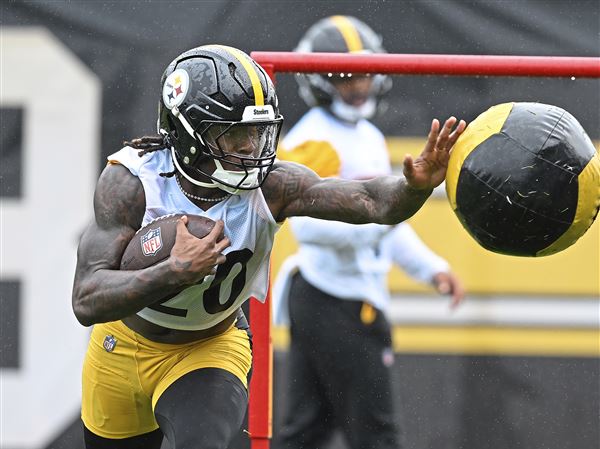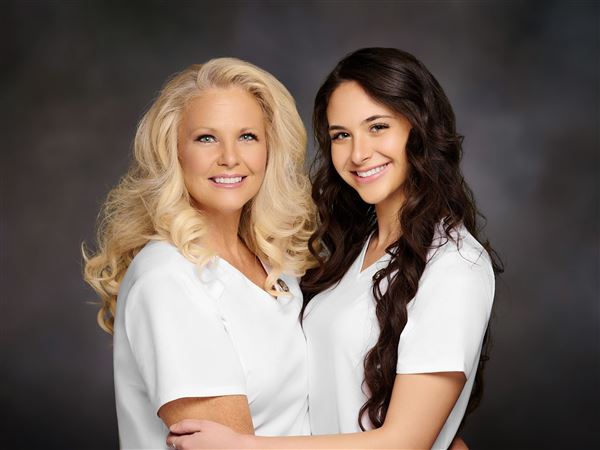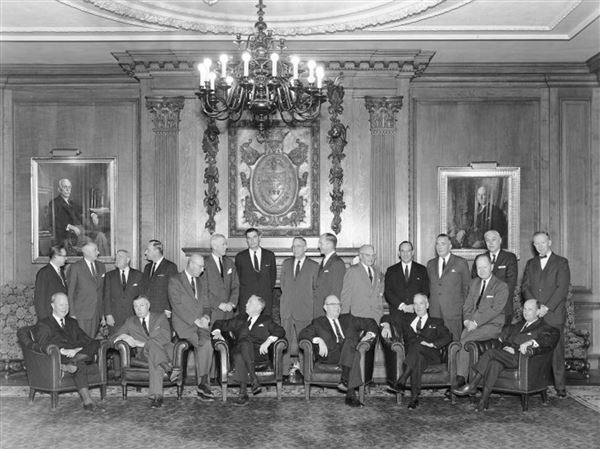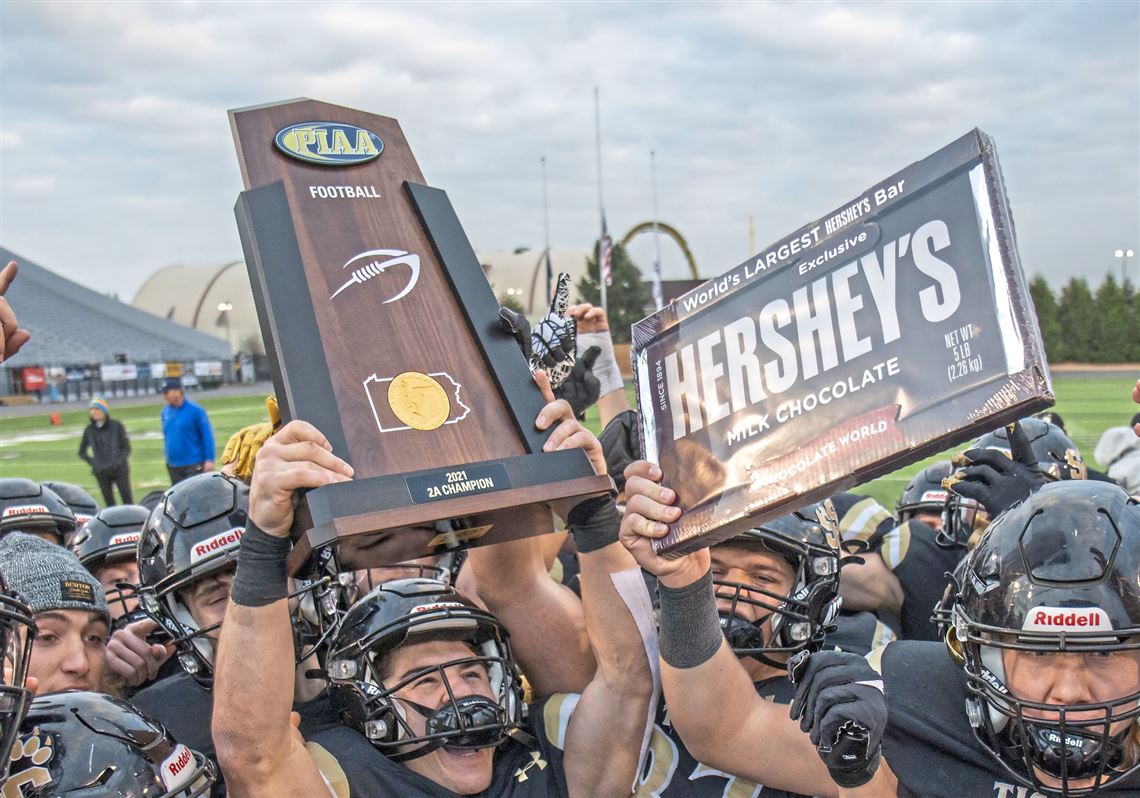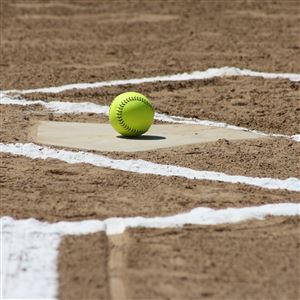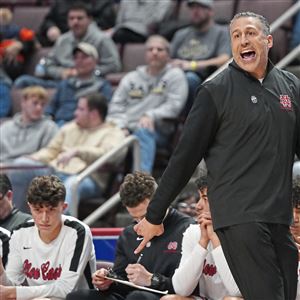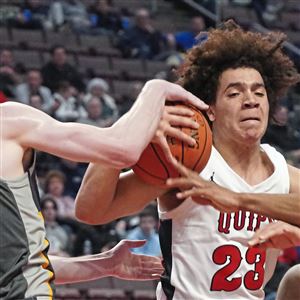I’m old enough to remember all the way back to January, when PIAA director Bob Lombardi put officials from Aliquippa through the wringer at a hearing about which classification the Quips football team should play in. Lombardi and PIAA lawyer Alan Boynton were using the “competitive-balance” formula to explain why the Quips needed to play up in 5A even though they have competed three classes above their actual enrollment in 4A.
“It sounds like almost crocodile tears, your complaining, when you’re humiliating your opponents and blowing them out,” said Boynton to Aliquippa coach Mike Warfield at the hearing when the Quips won their appeal and got to stay in 4A. “Is it your position that your team would not be competitive at 5A?”
Lombardi’s argument in trying to shoot down the Quips’ appeal hit all of those points about their success, as the PIAA was apparently very concerned about fairness and what is good for the game.
I bring this up because Lombardi and company apparently are no longer interested in discussing fairness and what is right with respect to competition on the heels of the PIAA basketball tournament. At least that’s what I can gather based on his remarks to Post-Gazette reporter Mike White with respect to the growing concern about private schools’ domination in the PIAA basketball tournaments over public schools.
The PIAA held 12 championships this past weekend (six classes each in boys and girls) and 10 of them were won by private/charter schools. That is becoming the rule and not the exception among the PIAA tournament, and White talked to a number of prominent high school coaches about the growing disparity between the private schools and public schools competitively.
Lombardi seems to think this kind of domination isn’t a problem. He also seems to think that this is just a lot of whining on the part of public school coaches and they should, in essence, just take their butt kickings like a man.
“It sounds like sour grapes,” Lombardi said to White. “I hope it’s not, but I didn’t hear any complaints when those teams were beating anyone on the road [to the state championships]. I think some teams made a little better adjustments in the [championship] games than others, some coaching adjustments.”
So it is apparently “crocodile tears” by Aliquippa when they rightfully say they shouldn’t have to play up another class just because they win a lot, but it is also “sour grapes” by all of the teams who are getting dominated by these loaded private school teams.
In short, according to the PIAA, the only school that apparently has an unfair advantage is Aliquippa — a school with about 115 boys total from grades 9-12 and about half the budget of schools its size — and they must accept their fate of playing at a higher level. Meanwhile, the Neumann-Gorettis, the Imhotep Charters, the Cardinal O’Hara’s, the OLSH’s and the Devon Preps can load up with players from wherever they want to find them, roll through playoff brackets and public schools, and we are supposed to believe that is OK.
Think how about how dumb the stance of Lombardi and the PIAA is on these matters. Aliquippa, one of the smallest schools in the WPIAL, had a few transfers and that triggered the nonsensical hearing about having to move up in class. Meanwhile, Roman Catholic, which won the boys 6A classification, has — according to its own website — students from “170 elementary schools and 90 zip codes” throughout the Delaware Valley. And Archbishop Wood, which won the 4A girls and lost to Roman Catholic in 6A boys, brags it is represented by 25 zip codes and three counties.
I’m not saying there is an easy solution, but the one thing I do know is making ridiculous statements designed to patronize and burying your head in the sand is not going to solve anything. And real leadership takes on hard discussions like this one and works to find a solution that can work for everyone.
Lombardi is right in that some of the complaints about private schools are purely sour grapes among coaches who just want to whine because they aren’t winning enough. But some of the complaints are legitimate and something probably does need to change or the PIAA tournament will continue to be a bit of a farce. There are no “coaching adjustments” available when the other team is running out a loaded team of the Pennsylvania, New Jersey and Delaware All-Stars and you are trying to play with a team of kids from one small town or district.
All of that being said, the PIAA has to do something to make the basketball tournaments more interesting and fair. Aliquippa, by the way, chooses to play up because the school recognizes if the Quips played in Class A, it would pretty much be a joke and they would bury most of those teams. A lot of this could be alleviated if more schools had the integrity of Aliquippa and moved up to a level in which they actually have competition, but winning trophies and claiming hollow state championships apparently is more important in some places.
There are two other solutions that they will never consider for all the wrong reasons. The first is simple: have separate classes for purposes of the PIAA tournament for private schools.
If they don’t want to do that — and it is clear they don’t — the other thing they should do is drop the ridiculous “competitive-balance” formula and get rid of all transfer rules. The transfer rules — especially any that prohibit students from participating after a transfer — are what separate public schools from private schools, so get rid of them.
It won’t happen, though, because the PIAA would rather make an example out of teams like Aliquippa football than take on the powerful forces that drive these private/charter schools. That is a hypocritical and weak stance to take by the PIAA, and no amount of dismissive statements can or will change that.
Paul Zeise: pzeise@post-gazette.com or Twitter: @paulzeise
First Published: March 29, 2022, 7:42 p.m.
